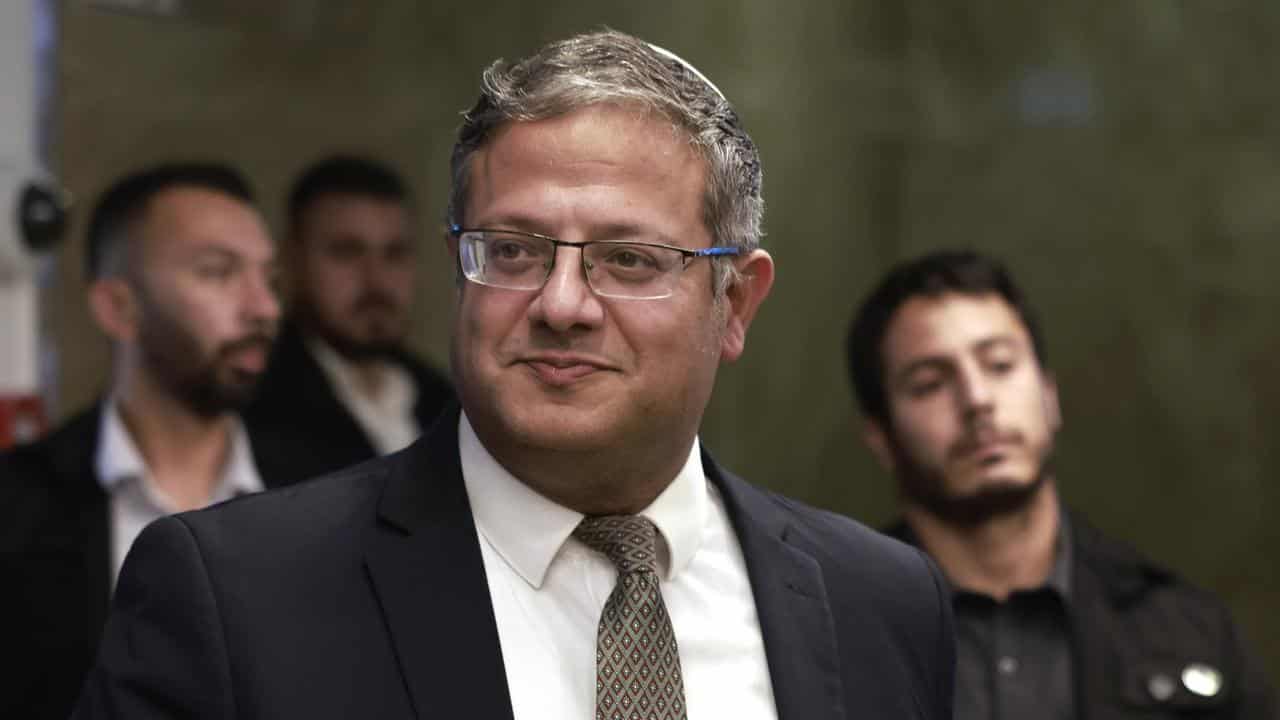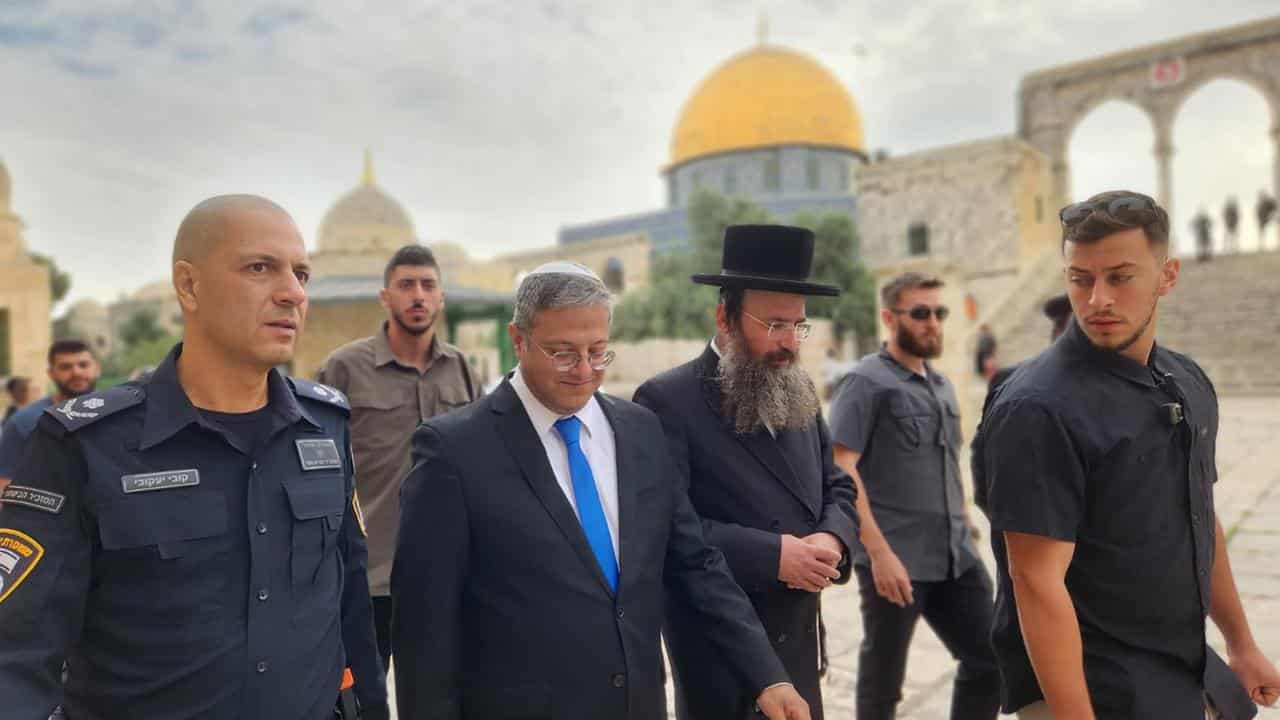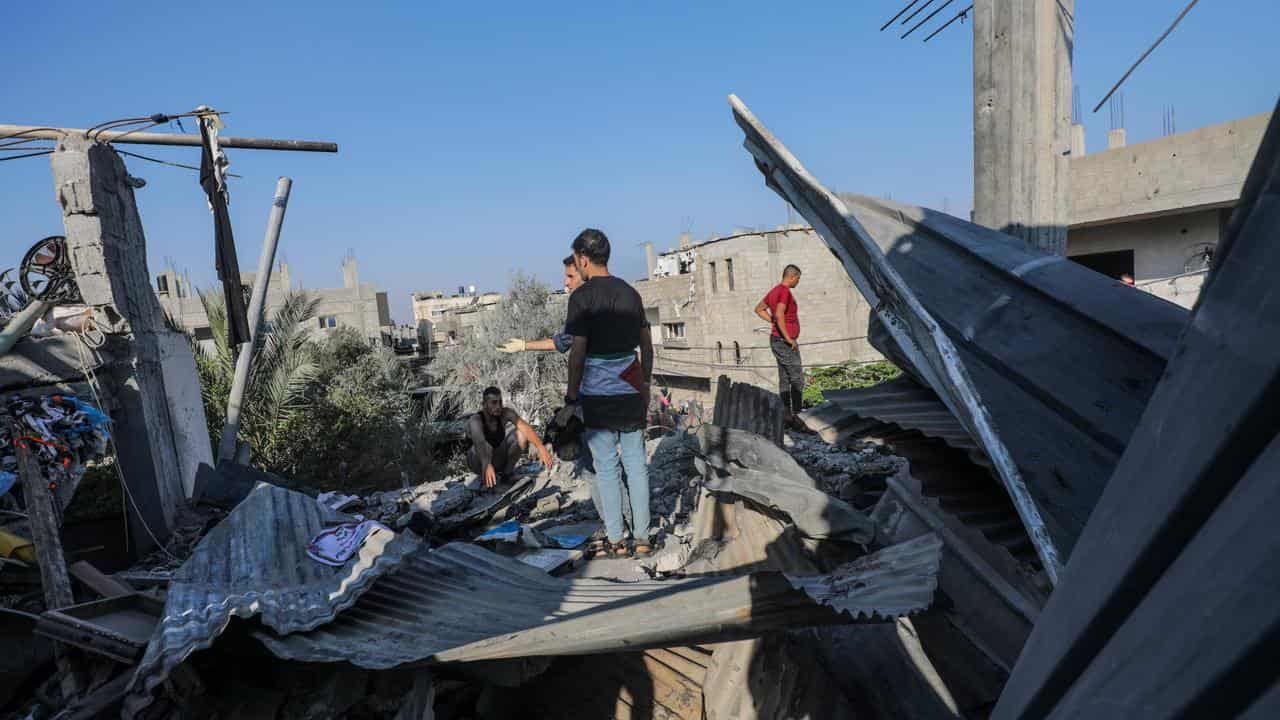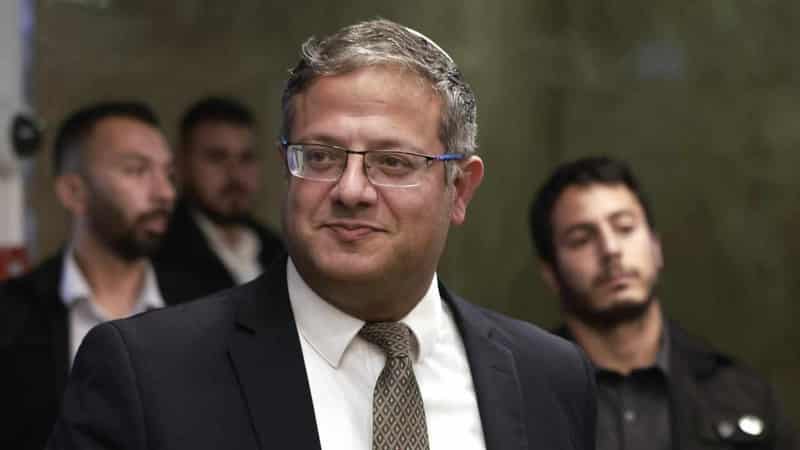
Israel's national security minister visited Jerusalem's most sensitive holy site, threatening to disrupt Gaza ceasefire talks.
Itamar Ben-Gvir, an ultranationalist settler leader, said he went to the contested Jerusalem hilltop compound of Al Aqsa Mosque on Thursday to pray for the return of the hostages "but without a reckless deal, without surrendering".
The move threatens to disrupt sensitive talks aimed at reaching a ceasefire in the nine-month-old Israel-Hamas war.

Israeli negotiators landed in Egypt on Wednesday to continue talks.
Ben-Gvir's visit also came just days before Prime Minister Benjamin Netanyahu leaves for a trip to the United States, where he will address Congress.
The minister said, while standing in front of the golden dome of the Al-Aqsa Mosque, that he was "praying and working hard" to ensure that Netanyahu would not give in to international pressure and would continue with the military campaign in Gaza.
Ben-Gvir last visited the site in May to protest against countries unilaterally recognising Palestinian statehood.
He has been convicted eight times for offences including racism and supporting a terrorist organisation.
As security minister, Ben-Gvir oversees the country's police force. As a key coalition partner, he also has the power to rob Netanyahu of his parliamentary majority and try to force early elections.
Ben-Gvir has used his influence to push forward pet projects and encourage Netanyahu to press ahead with the war in Gaza in the face of widespread calls to reach a ceasefire deal that would bring home hostages.
The Palestinian foreign ministry condemned Ben-Gvir's visit as a "provocative intrusion" that endangered the fragile status quo regarding the Jerusalem hilltop compound, which is considered holy for both Muslims and Jews.
The site is revered by Jews as the Temple Mount, and by Muslims as Haram al-Sharif, a holy site and important national symbol.
Ben-Gvir has frequently visited the site during times of conflict, drawing condemnation. Tensions over the compound have fuelled past rounds of violence.

In an overnight session that lasted into Thursday morning, Israel's parliament overwhelmingly passed a resolution rejecting the establishment of a Palestinian state.
The vote was largely symbolic and meant to send a message ahead of Netanyahu's trip to the US.
Israeli strikes in central Gaza killed at least 11 people overnight, according to the Hamas-run Civil Defence organisation and hospitals.
At least two children and two women were killed in air strikes on a house and a car.
In recent weeks, Israel has stepped up strikes in central Gaza, where many Palestinians have fled to escape fighting in other parts of the beleaguered territory.
The war in Gaza, which was sparked by Hamas' October 7 attack on southern Israel, has killed more than 38,600 people, according to the territory's health ministry, which does not distinguish between combatants and civilians in its count.
The war has created a humanitarian catastrophe in the coastal Palestinian territory, displaced most of its 2.3 million population and triggered widespread hunger.
Hamas' October attack killed 1200 people, mostly civilians, and militants took about 250 hostage.
About 120 remain in captivity, with about a third of them believed to be dead, according to Israeli authorities.









